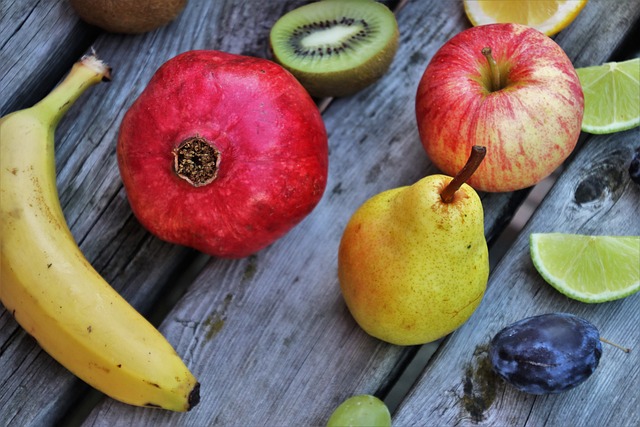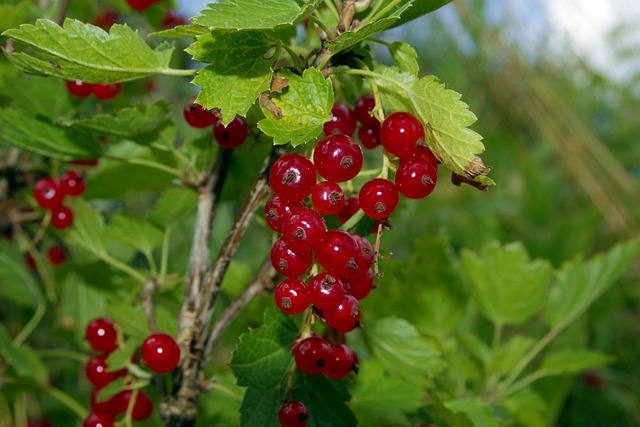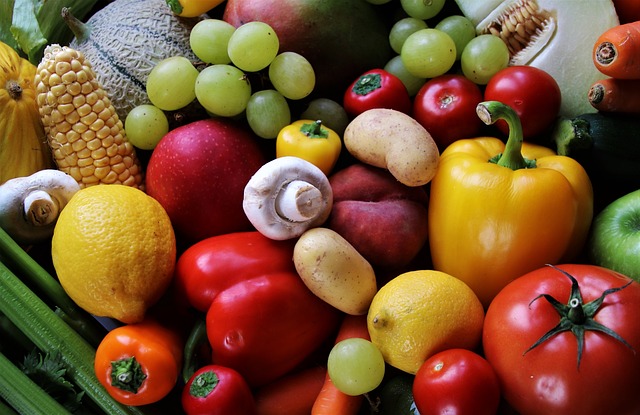The Science Behind Antioxidants and Their Impact on Health
Introduction:
In the pursuit of optimal health, few allies are as steadfast and essential as antioxidants. These remarkable compounds stand as vigilant protectors, shielding our bodies from the ravages of oxidative stress and fortifying us against a myriad of chronic ailments. In this comprehensive exploration, we embark on a journey into the realm of antioxidants, unraveling their mechanisms, origins, and the profound impact they wield upon human health.
Understanding Antioxidants:
At the heart of cellular defense lies the noble task of antioxidants. These molecular defenders stand poised to counteract the menace of free radicals, volatile entities birthed within our bodies during metabolic processes or in response to external stressors like pollution and unhealthy dietary habits. Left unchecked, free radicals unleash chaos upon our cellular landscape, instigating inflammation, DNA damage, and hastened aging.
Mechanisms of Action:
Antioxidants emerge as valiant champions in the battle against oxidative stress. Their modus operandi revolves around the altruistic donation of electrons, effectively neutralizing free radicals and extinguishing their malevolent influence. Operating as vigilant sentinels, antioxidants intercept these rogue molecules, halting their destructive rampage and preserving the integrity of cellular structures.
Types of Antioxidants:
The pantheon of antioxidants encompasses a diverse array of compounds, each endowed with unique properties and virtues. Among the illustrious ranks stand stalwarts such as vitamin C, vitamin E, beta-carotene, selenium, and flavonoids. These noble guardians can be found in an assortment of nature's bounty, including fruits, vegetables, nuts, seeds, and whole grains.

Sources of Antioxidants:
The bounty of antioxidants lies within the vibrant tapestry of nature's harvest. Fruits and vegetables, resplendent in a kaleidoscope of hues, emerge as veritable treasure troves of these vital compounds. From the succulent allure of berries to the verdant embrace of leafy greens, an abundance of antioxidant-rich fare awaits. Nuts, seeds, legumes, and select spices further enrich the banquet, offering a symphony of flavors and healthful benefits.
Health Benefits of Antioxidants:
The accolades bestowed upon antioxidants are as manifold as they are meritorious. Their contributions to human health are legion, encompassing realms both tangible and profound:
1. Protection Against Chronic Diseases: Antioxidants serve as stalwart guardians, mitigating the risk of chronic maladies such as heart disease, cancer, and neurodegenerative disorders by quelling oxidative stress and inflammation.
2. Anti-Aging Efficacy: In their relentless defense against free radicals, antioxidants bestow upon us the gift of youth, slowing the inexorable march of time and preserving the vitality of skin, mind, and body.
3. Immune Vigilance: Bolstered by the protective embrace of antioxidants, the immune system stands fortified, its defenses sharpened against the onslaught of pathogens and infections.
4. Cardiovascular Well-being: Certain antioxidants, such as the illustrious flavonoids found in dark chocolate and red wine, lend succor to the heart, fostering optimal circulation, regulating blood pressure, and safeguarding against the oxidation of LDL cholesterol.
5. Ocular Clarity: Antioxidants like lutein and zeaxanthin stand as unwavering sentinels, safeguarding ocular health and warding off the specters of age-related macular degeneration and cataracts.
Optimizing Your Antioxidant Intake:
To harness the full spectrum of antioxidant benefits, one must heed the wisdom of nature's bounty. Embrace the kaleidoscope of colors adorning fruits and vegetables, and indulge in the rich tapestry of nuts, seeds, and spices. By weaving these antioxidant-rich delights into the fabric of our diets, we fortify our bodies against the assaults of oxidative stress and pave the path to enduring health and vitality.

Supplementation:
Supplementation can be a helpful option for those facing challenges in acquiring sufficient antioxidants through their diet, especially due to dietary limitations or specific health issues. Although whole foods are the preferred source of antioxidants, supplements offer a convenient way to address deficiencies or boost antioxidant intake.
However, it's crucial to approach supplementation with caution and seek advice from healthcare professionals beforehand. Consulting with a qualified practitioner ensures that supplementation is tailored to individual health needs and circumstances. They can provide personalized recommendations, consider potential interactions with medications or existing health conditions, and advise on appropriate dosage levels.
It's important to remember that supplementation should complement rather than replace a balanced diet rich in antioxidant-rich foods. By exercising prudence and seeking professional guidance, supplementation can serve as a supportive strategy in promoting overall health and well-being.
Conclusion:
In the tapestry of human health, antioxidants emerge as luminous threads, weaving a narrative of resilience, vitality, and longevity. As stewards of our own well-being, let us embrace the abundance of antioxidant-rich fare that nature so generously bestows. Through informed dietary choices and a steadfast commitment to holistic wellness, we unlock the boundless potential of antioxidants and embark upon a journey towards a brighter, healthier tomorrow.

FAQs on The Science Behind Antioxidants and Their Impact on Health
1. What defines antioxidants, and why are they pivotal for well-being?
Antioxidants represent vital compounds that counteract the adverse effects of free radicals, safeguarding cellular integrity and thwarting the onset of numerous health complications. Their significance lies in their ability to combat oxidative stress, a process intricately linked to the development of chronic ailments such as cardiovascular disease, cancer, and neurodegenerative disorders.
2. How do antioxidants function within the body?
Antioxidants operate as vigilant defenders, swooping in to neutralize free radicals by offering up electrons, thus quelling their destabilizing influence. Acting as cellular sentinels, they intercept these rogue molecules before they can inflict harm upon essential cellular components like proteins, lipids, and DNA.
3. What are the primary reservoirs of antioxidants in our diets?
Nature's bounty unfolds a rich tapestry of antioxidant-rich fare, with fruits and vegetables taking center stage. From the vibrant allure of berries to the verdant embrace of leafy greens, these culinary treasures brim with antioxidants. Nuts, seeds, whole grains, and select spices also stand as formidable sources, enriching our diets and fortifying our bodies against oxidative onslaughts.
4. What are the overarching benefits associated with antioxidants?
Antioxidants herald a myriad of health advantages, spanning realms both tangible and profound. They serve as stalwart guardians against chronic diseases, allies in the quest for youthful vigor, bolsterers of immune resilience, champions of cardiovascular well-being, and custodians of ocular clarity.
5. Can antioxidants be effectively supplemented in one's diet?
While whole foods remain the pinnacle of antioxidant provision, supplements may offer solace to those navigating dietary constraints or specific health exigencies. However, prudence dictates seeking counsel from healthcare practitioners before embarking upon the realm of supplementation, ensuring judicious and informed choices.

6. How can individuals optimize their antioxidant intake through dietary choices?
Harnessing the full spectrum of antioxidant benefits necessitates embracing the kaleidoscope of nature's offerings. Embrace the vibrant hues of fruits and vegetables, revel in the crunch of nuts and seeds, and savor the aromatic delights of antioxidant-rich spices. By weaving these culinary delights into our diets, we fortify our bodies and cultivate enduring health and vitality.
7. Which lifestyle factors can impact antioxidant levels within the body?
Several lifestyle determinants wield influence over antioxidant levels within the body. Steering clear of tobacco, moderating alcohol consumption, minimizing exposure to environmental toxins, and maintaining a healthy weight through regular exercise and stress management all play pivotal roles in supporting optimal antioxidant status and overall well-being.
8. How do antioxidants contribute to skin health and appearance?
Antioxidants emerge as potent allies in the quest for radiant skin. By neutralizing free radicals and diminishing oxidative stress, they thwart the signs of aging, bolster collagen production, and shield against the deleterious effects of UV radiation and environmental pollutants, unveiling a visage imbued with vitality and luminosity.
Powered by Froala Editor





Leave a Reply